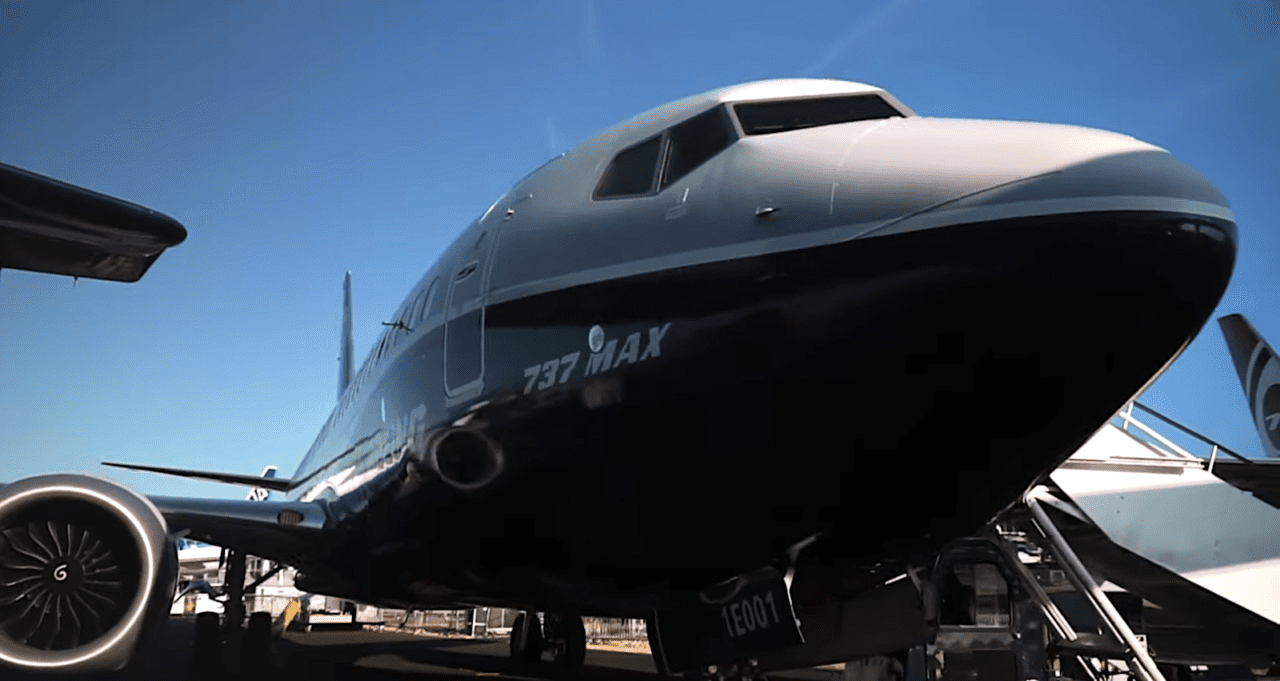
Former Boeing 737 MAX Chief Technical Pilot Mark Forkner has been indicted in Northern Texas for allegedly deceiving the Federal Aviation Administration's evaluation of the 737 MAX flight control system. (Boeing)
Mark A. Forkner, former Boeing 737 MAX Chief Technical Pilot, has been indicted by a federal grand jury in the Northern District of Texas, according to an Oct. 14 Department of Justice announcement.
Forkner is being charged with allegedly deceiving the Federal Aviation Administration’s Aircraft Evaluation Group (FAA AEG) in connection with the group's evaluation of the Boeing 737 MAX, which returned to passenger carrying service late last year after being grounded when two separate Lion Air and Ethiopian Airline flights involving the aircraft crashed six months apart. An indictment outlining the investigation into Forkner notes that his alleged deception involves providing the FAA AEG with materially false, inaccurate, and incomplete information about a new part of the Boeing 737 MAX flight controls, the Maneuvering Characteristics Augmentation System (MCAS).
According to Forkner's indictment, the alleged fraud occurred a change was made to the way MCAS functions. Originally, MCAS was included in the flight control system to fix the tendency of the 737 MAX to pitch-up during high-speed — approximately Mach 0.6-0.8) — wind-up turns, that was caused by the 737 MAX's larger engines being situated differently under than wings compared to the 737 NG. Eventually, as the new aircraft type progressed closer to achieving final type certification, that characteristic was changed and the MCAS started operating at lower speeds, around Mach 0.2, investigators write in the indictment.
As the lead technical pilot for the program, Forkner was tasked with updating the FAA AEG with insights into the aircraft's performance, and any issues or challenges they should be aware of. Forkner eventually learned of the change to MCAS's operational scope during a simulated test flight of the 737 MAX in November 2016. However, following his discovery of this change, he withheld the information from the FAA AEG during a follow up discussion with them about the simulated flight he participated in where the change was discovered.
The indictment notes that Forkner withheld the information intentionally in an effort to prevent the FAA AEG from including a level higher than Level B in assessing the level of the differences between the 737 MAX and its predecessor aircraft type, the 737 NG. Training levels above Level B potentially can be much more expensive for airlines and they typically involve full-flight simulator training, an aspect of the re-engined aircraft that Boeing wanted to avoid so that the cost of adopting the new aircraft would not be preventatively expensive.
Thus, when the FAA AEG published its Flight Standardization Board Report that included the differences training determination for the new version of the aircraft, no mention of MCAS was included because the AEG was going off the original premise that it would only become enabled at speeds higher than the normal operational scope of a typical passenger carrying 737 MAX flight. Officials note in the indictment that the AEG did not learn of the change from MCAS operating at the higher speeds to the lower Mach 0.2 until the fatal crash of Lion Air flight 610.
“In an attempt to save Boeing money, Forkner allegedly withheld critical information from regulators,” Acting U.S. Attorney Chad E. Meacham for the Northern District of Texas said in a statement. “His callous choice to mislead the FAA hampered the agency’s ability to protect the flying public and left pilots in the lurch, lacking information about certain 737 MAX flight controls. The Department of Justice will not tolerate fraud – especially in industries where the stakes are so high.”
Forkner is being charged with two counts of fraud involving aircraft parts in interstate commerce and four counts of wire fraud, according to the indictment. If convicted, he faces a maximum penalty of 20 years in prison on each count of wire fraud and 10 years in prison on each count of fraud involving aircraft parts in interstate commerce.
“There is no excusing those who deceive safety regulators for the sake of personal gain or commercial expediency,” said Inspector General Eric J. Soskin of the U.S. Department of Transportation. “Our office works continuously to help keep the skies safe for flying and protect the traveling public from needless danger. Today’s charges demonstrate our unwavering commitment to working with our law enforcement and prosecutorial partners to hold responsible those who put lives at risk.”
"Max" - Google News
October 21, 2021 at 05:25AM
https://ift.tt/3ndr7Z1
Fraud Investigation Leads to Indictment of Former Boeing 737 MAX Chief Technical Pilot - Aviation Today
"Max" - Google News
https://ift.tt/2YlVjXi
Bagikan Berita Ini














0 Response to "Fraud Investigation Leads to Indictment of Former Boeing 737 MAX Chief Technical Pilot - Aviation Today"
Post a Comment